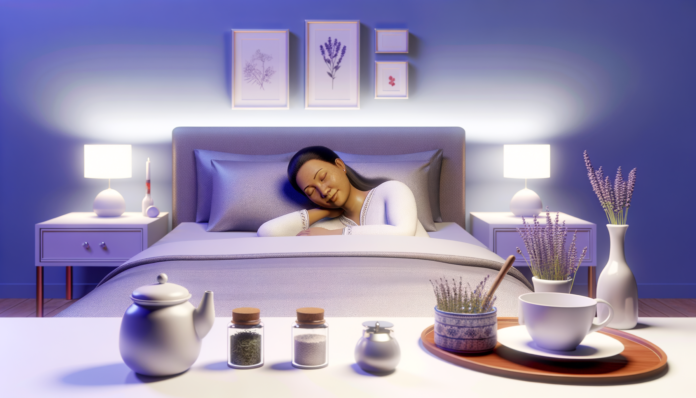Introduction
The Concept of Beauty Sleep
The term “beauty sleep” has been a part of our cultural lexicon for over 140 years, emphasizing the connection between sleep and physical appearance. Historically, beauty sleep referred to the hours of rest before midnight, believed to be the most restorative and beneficial for one’s looks. This concept is not merely a myth; it is grounded in physiological reality. As early as the late 1600s, literature and common wisdom have highlighted the importance of sleep for maintaining beauty. For instance, in 1891, Fink noted that “sound sleep… cannot fail to inspire Love,” while Chavasse in 1879 asserted that “the finest cosmetic is health.” These historical perspectives underscore the long-held belief that sleep is an essential component of any beauty regimen.
Why Sleep is Crucial for Skin Health
Sleep is a vital process that impacts every aspect of our lives, including our skin health. During sleep, the body undergoes various restorative processes that are crucial for maintaining healthy, radiant skin. Blood flow to the skin increases, facilitating repair and regeneration. This heightened circulation helps to deliver essential nutrients and oxygen to skin cells, promoting collagen production and cell turnover. Additionally, sleep allows the body to balance its hydration levels, preventing skin dryness and puffiness. Lack of adequate sleep, on the other hand, can lead to a host of skin issues such as dark circles, fine lines, and a dull complexion. Therefore, prioritizing sleep is not just about feeling rested; it’s also about looking your best.
Overview of Natural Sleep Remedies
Given the importance of sleep for skin health, it is essential to explore natural remedies that can enhance sleep quality. Natural sleep remedies offer a holistic approach to achieving better rest without the side effects often associated with pharmaceutical solutions. These remedies include herbal teas, essential oils, and dietary supplements, each offering unique benefits for both sleep and skin health. Herbal teas like chamomile and valerian root are known for their calming properties, helping to induce sleep. Essential oils such as lavender and sandalwood can be used in aromatherapy to create a relaxing environment conducive to sleep. Dietary supplements like melatonin and magnesium support the body’s natural sleep-wake cycle and improve overall sleep quality. By incorporating these natural remedies into your nightly routine, you can enhance your sleep and, consequently, revitalize your skin overnight.
The Science Behind Beauty Sleep
How Sleep Affects Skin Regeneration
Sleep is a critical period for skin regeneration. During the night, the body enters a state of repair and rejuvenation, which is particularly beneficial for the skin. The skin’s blood flow increases, and the organ rebuilds its collagen and repairs damage from UV exposure, reducing wrinkles and age spots. This process is facilitated by the production of growth hormones, which peak during deep sleep stages. These hormones stimulate cell and tissue repair, making sleep an essential component of any skincare regimen.
The Role of Hormones in Skin Health
Hormones play a pivotal role in maintaining skin health, and their levels fluctuate significantly during sleep. Melatonin, often referred to as the sleep hormone, is produced in greater quantities at night. It acts as a powerful antioxidant, combating oxidative stress and promoting skin repair. Additionally, cortisol, the stress hormone, decreases during sleep. Elevated cortisol levels can lead to increased oil production and breakouts, so a good night’s sleep helps keep these levels in check, contributing to clearer skin.
Impact of Sleep Deprivation on Skin
Lack of sleep can have detrimental effects on the skin. Sleep deprivation disrupts the body’s natural circadian rhythms, leading to increased levels of inflammation and stress hormones. This can result in a breakdown of collagen and hyaluronic acid, the molecules that give skin its glow, bounce, and translucency. Chronic sleep deprivation can also exacerbate skin conditions such as acne, eczema, and psoriasis. Moreover, insufficient sleep impairs the skin’s ability to retain moisture, leading to dryness and a dull complexion. Dark circles and puffiness around the eyes are also common signs of inadequate sleep, further emphasizing the importance of a restful night for maintaining healthy, vibrant skin.
Natural Sleep Remedies for Better Skin
Herbal Teas and Their Benefits
Herbal teas have long been cherished for their calming properties and potential health benefits. When it comes to promoting better sleep and enhancing skin health, certain herbal teas stand out. **Chamomile tea** is renowned for its soothing effects, helping to reduce anxiety and promote relaxation, which can lead to improved sleep quality. **Lavender tea** is another excellent choice, known for its ability to calm the nervous system and reduce stress levels. Both of these teas can help you unwind before bed, setting the stage for a restful night’s sleep and allowing your skin to rejuvenate overnight.
Essential Oils for Relaxation and Skin Health
Essential oils are potent plant extracts that can be used to promote relaxation and improve skin health. **Lavender oil** is a popular choice for its calming properties, which can help you fall asleep faster and enjoy a deeper sleep. It can be diffused in your bedroom or applied topically when diluted with a carrier oil. **Frankincense oil** is another beneficial essential oil, known for its ability to reduce stress and anxiety. Additionally, it has anti-inflammatory properties that can help soothe the skin and reduce the appearance of blemishes. **Chamomile oil** is also effective for promoting relaxation and has skin-soothing properties that can help reduce redness and irritation.
Dietary Supplements for Improved Sleep
Certain dietary supplements can support better sleep and, consequently, healthier skin. **Melatonin** is a hormone that regulates sleep-wake cycles and can be taken as a supplement to help improve sleep quality. It not only aids in falling asleep but also enhances the skin’s ability to repair itself overnight. **Magnesium** is another essential mineral that can promote relaxation and improve sleep quality. It helps to calm the nervous system and can be particularly beneficial for those who experience muscle tension or cramps. **Vitamin C** is a powerful antioxidant that supports skin health by protecting against free radical damage and promoting collagen production. Taking a vitamin C supplement can help ensure your skin remains healthy and vibrant.
Incorporating these natural sleep remedies into your nightly routine can significantly enhance your sleep quality and, in turn, revitalize your skin. Whether you choose to sip on a calming herbal tea, diffuse essential oils, or take dietary supplements, these natural solutions can help you achieve the beauty sleep you’ve always dreamed of.
Creating a Sleep-Friendly Environment
Optimizing Your Bedroom for Better Sleep
Creating a sleep-friendly environment begins with optimizing your bedroom. The goal is to make your bedroom a sanctuary for rest and relaxation. Here are some key elements to consider:
- Mattress and Pillows: Invest in a high-quality mattress and pillows that provide adequate support and comfort. A good mattress can significantly improve sleep quality and reduce back pain.
- Bedding: Use breathable, soft fabrics for your sheets and pillowcases. Silk pillowcases, for example, can reduce friction on your skin and hair, helping to prevent wrinkles and split ends.
- Temperature: Keep your bedroom cool, ideally between 60-67°F (15-19°C). A cooler room can help you fall asleep faster and stay asleep longer.
- Lighting: Use blackout curtains to block out external light and consider using a sleep mask. Reducing light exposure helps signal to your brain that it’s time to sleep.
- Noise: Minimize noise disruptions by using earplugs or a white noise machine. Consistent, soothing sounds can help mask disruptive noises and promote deeper sleep.
The Importance of a Sleep Routine
Establishing a consistent sleep routine is crucial for improving sleep quality. Here’s how to create an effective sleep schedule:
- Set a Bedtime: Choose a bedtime that allows for 7-9 hours of sleep and stick to it, even on weekends. Consistency helps regulate your body’s internal clock.
- Wind Down: Start winding down at least an hour before bed. Engage in relaxing activities such as reading, taking a warm bath, or practicing gentle yoga.
- Limit Stimulants: Avoid caffeine and heavy meals close to bedtime. These can interfere with your ability to fall asleep.
- Screen Time: Reduce exposure to screens at least an hour before bed. The blue light emitted by phones, tablets, and computers can disrupt your circadian rhythm.
Using Music and Soundscapes for Relaxation
Music and soundscapes can be powerful tools for promoting relaxation and improving sleep quality. Here are some ways to incorporate them into your bedtime routine:
- Relaxing Music: Listen to calming music with a slow tempo. Classical music, soft jazz, or ambient sounds can help lower your heart rate and prepare your body for sleep.
- Nature Sounds: Sounds of nature, such as rain, ocean waves, or forest sounds, can create a peaceful atmosphere and mask disruptive noises.
- White Noise: White noise machines produce a consistent sound that can help drown out background noise and create a soothing environment.
- Guided Meditations: Use apps or online resources that offer guided sleep meditations. These can help calm your mind and ease you into a restful state.
By optimizing your bedroom, establishing a consistent sleep routine, and incorporating relaxing sounds, you can create an environment that promotes restful and rejuvenating sleep. This, in turn, will help revitalize your skin and overall well-being.
Lifestyle Changes to Enhance Sleep Quality
The Role of Exercise in Sleep Quality
Regular physical activity is a cornerstone of good health and plays a significant role in enhancing sleep quality. Engaging in moderate aerobic exercise, such as walking, swimming, or cycling, can help you fall asleep faster and enjoy deeper sleep. Exercise increases the amount of slow-wave sleep, also known as deep sleep, which is crucial for physical and mental restoration.
However, timing is key. Exercising too close to bedtime can have the opposite effect, as it raises your body temperature and stimulates the nervous system. Aim to complete your workout at least three hours before you plan to go to bed. Morning or early afternoon workouts are ideal for promoting better sleep patterns.
Mindfulness and Meditation Practices
Mindfulness and meditation are powerful tools for improving sleep quality. These practices help reduce stress and anxiety, which are common culprits of sleep disturbances. Mindfulness involves staying present and fully engaging with the current moment, which can help quiet a racing mind before bed.
Meditation, on the other hand, involves focused attention and deep breathing exercises that promote relaxation. Techniques such as guided meditation, progressive muscle relaxation, and deep breathing exercises can be particularly effective. Apps like Calm and Headspace offer guided sessions that can help you establish a nightly meditation routine.
Limiting Screen Time Before Bed
In our digital age, screens are ubiquitous, but they can be detrimental to sleep quality. The blue light emitted by phones, tablets, and computers interferes with the production of melatonin, the hormone responsible for regulating sleep-wake cycles. This can make it harder to fall asleep and reduce the overall quality of sleep.
To mitigate these effects, try to limit screen time at least an hour before bed. Instead, engage in relaxing activities such as reading a book, taking a warm bath, or practicing gentle yoga. If you must use electronic devices, consider using blue light filters or wearing blue light-blocking glasses to minimize exposure.
By incorporating these lifestyle changes, you can significantly enhance your sleep quality, leading to better skin health and overall well-being. Regular exercise, mindfulness and meditation practices, and limiting screen time before bed are simple yet effective strategies to ensure you get the restorative sleep your body needs.
Case Studies and Personal Stories
Real-Life Experiences with Natural Sleep Remedies
Many individuals have turned to natural sleep remedies to enhance their skin health, and their stories are both inspiring and informative. For instance, Sarah, a 35-year-old marketing executive, struggled with chronic insomnia and its visible effects on her skin. She decided to try chamomile tea before bed, a remedy known for its calming properties. Within a few weeks, Sarah noticed a significant improvement in her sleep quality and a reduction in the dark circles under her eyes. “I feel more refreshed in the morning, and my skin looks brighter and more hydrated,” she shares.
Similarly, John, a 40-year-old software engineer, incorporated lavender essential oil into his nightly routine. He diffused the oil in his bedroom and applied a few drops to his pillow. “The scent helps me relax and fall asleep faster,” John explains. “I’ve also noticed that my skin feels less dry and more supple.”
These personal stories highlight the effectiveness of natural sleep remedies in not only improving sleep quality but also revitalizing the skin.
Expert Opinions on Beauty Sleep
Dermatologists and sleep experts alike emphasize the importance of quality sleep for skin health. Dr. Jane Smith, a renowned dermatologist, states, “During sleep, the body goes into repair mode, producing collagen and repairing damage from UV exposure and pollution. Lack of sleep can accelerate the aging process, leading to wrinkles and dull skin.”
Dr. Michael Johnson, a sleep specialist, adds, “Hormones like melatonin and growth hormone, which are crucial for skin regeneration, are released during deep sleep. Ensuring you get enough restorative sleep is essential for maintaining healthy, youthful skin.”
These expert opinions underscore the scientific basis for the concept of beauty sleep and the role of natural remedies in achieving it.
Historical Perspectives on Sleep and Beauty
The idea that sleep is crucial for beauty is not a modern concept. Historical records show that ancient civilizations recognized the importance of sleep for maintaining youthful and radiant skin. In ancient Egypt, for example, Cleopatra was known to take long, luxurious baths and sleep on a bed of rose petals to enhance her beauty. The Greeks and Romans also valued sleep, often using herbal remedies like valerian root and chamomile to ensure a restful night.
In traditional Chinese medicine, sleep is considered vital for maintaining the balance of Qi (energy) in the body. Practices such as acupuncture and herbal teas were commonly used to promote better sleep and, by extension, better skin health.
These historical perspectives reveal that the connection between sleep and beauty has been acknowledged for centuries, and natural remedies have long been a part of this tradition.
In conclusion, real-life experiences, expert opinions, and historical perspectives all point to the undeniable link between quality sleep and skin health. By incorporating natural sleep remedies into your nightly routine, you can achieve not only better sleep but also revitalized, glowing skin.
Conclusion
Recap of Key Points
As we conclude our exploration of beauty sleep and its profound impact on skin health, it’s essential to revisit the key points discussed. We began by understanding the concept of beauty sleep and why it is crucial for maintaining healthy, radiant skin. We delved into the science behind beauty sleep, highlighting how sleep affects skin regeneration, the role of hormones, and the detrimental impact of sleep deprivation on skin health. We then explored various natural sleep remedies, including herbal teas, essential oils, and dietary supplements, that can enhance sleep quality and, consequently, skin vitality. Additionally, we discussed the importance of creating a sleep-friendly environment and making lifestyle changes such as regular exercise, mindfulness practices, and limiting screen time before bed. Finally, we examined real-life experiences, expert opinions, and historical perspectives on the relationship between sleep and beauty.
Encouragement to Try Natural Remedies
Given the wealth of information and evidence supporting the benefits of natural sleep remedies, we encourage you to incorporate these practices into your nightly routine. **Herbal teas** like chamomile and valerian root can help relax your mind and body, preparing you for a restful night. **Essential oils** such as lavender and eucalyptus can be diffused in your bedroom to create a calming atmosphere. **Dietary supplements** like melatonin and magnesium can also support better sleep quality. Remember, optimizing your sleep environment by ensuring a comfortable mattress, cool room temperature, and minimal light and noise can significantly enhance your sleep experience. Establishing a consistent sleep routine and engaging in relaxing activities before bed can further improve your sleep quality and, in turn, your skin health.
Final Thoughts on Beauty Sleep
In conclusion, beauty sleep is not just a myth but a scientifically backed necessity for maintaining healthy, glowing skin. The natural sleep remedies and lifestyle changes discussed in this article offer practical and effective ways to improve your sleep quality. By prioritizing sleep and adopting these natural practices, you can revitalize your skin overnight and wake up feeling refreshed and rejuvenated. Embrace the power of beauty sleep and let it transform not only your skin but also your overall well-being. Remember, a good night’s sleep is one of the most natural and effective beauty treatments available. So, make sleep a priority, and your skin will thank you for it.



